Who’s the Largest Foreign Employer in Your Country?
Think globally, hire globally
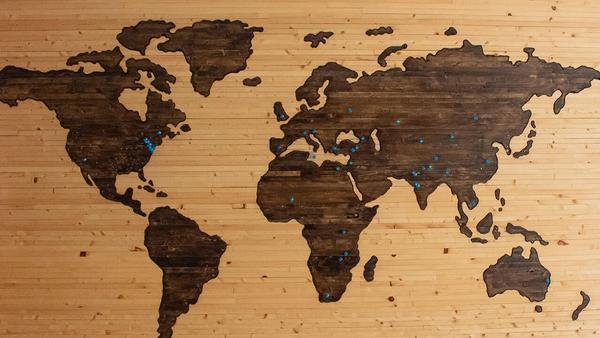
Globalization has faced challenges in recent years, with the pandemic and several supply chain disruptions. Nevertheless, companies around the world have kept expanding internationally, both in terms of their reach in foreign markets and also to recruit the world's fines talent. As a result, foreign companies hire a large and growing fraction of the worldwide workforce.
Recently, international hiring has outpaced domestic hiring activity. Using Revelio Labs HR data, we find that the difference between hiring by international and domestic employers has increased from 0.5 to 3.5 percentage points between 2016 and 2022.

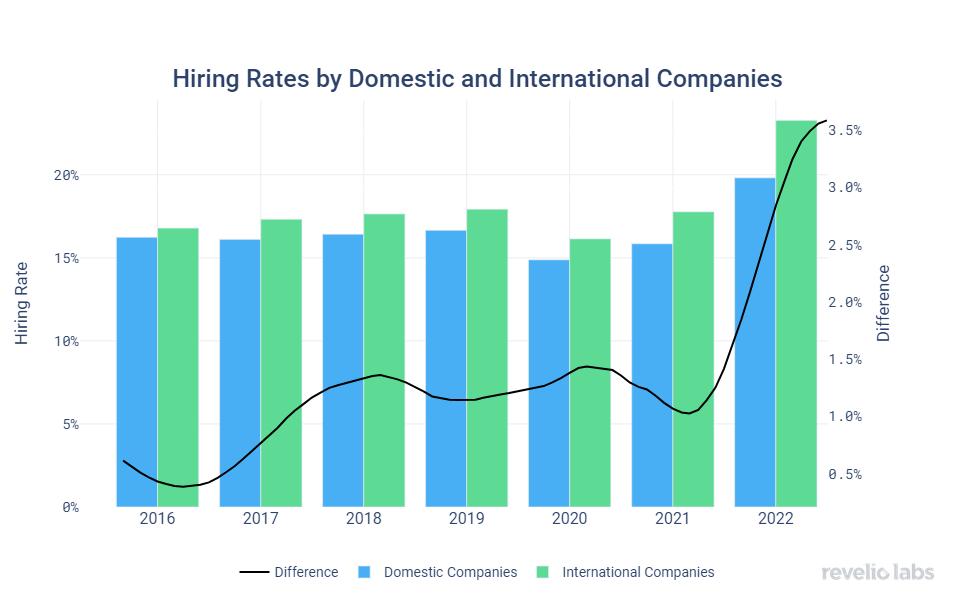
The expansion of multinational firms has had the largest impacts on developing countries. Developing countries in North Africa, Eastern Europe, and Southeast Asia have the largest shares of professionals employed by foreign companies. While countries like the Philippines, Thailand, and Mexico have long been destinations for outsourcing, they are also emerging markets with large consumer bases to be reached by foreign companies.

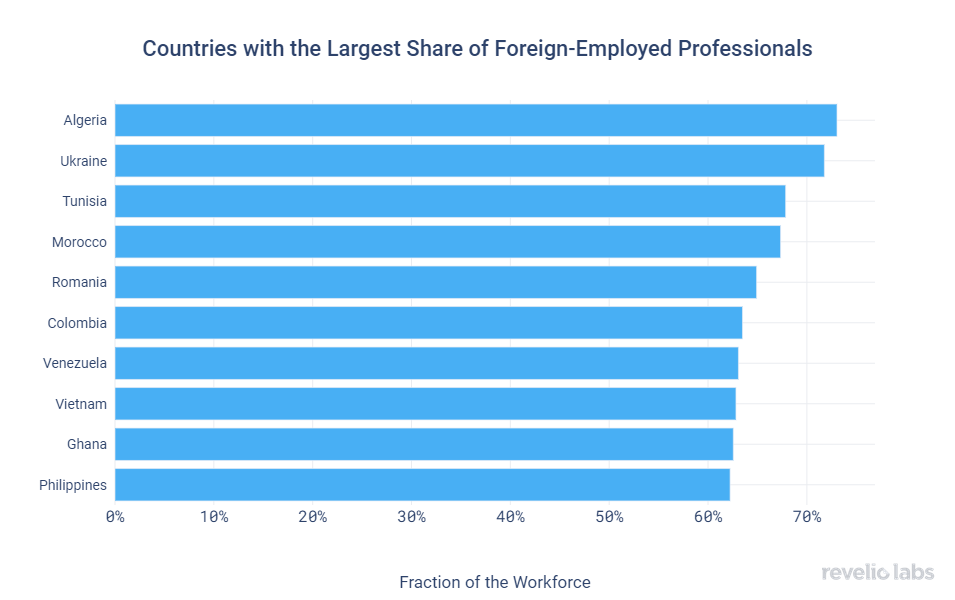
Sign up for our newsletter
Our weekly data driven newsletter provides in-depth analysis of workforce trends and news, delivered straight to your inbox!
The map below shows the main “specialty foreign employer” in each country. That is, each listed company is overrepresented in the workforce of the given country, relative to the workforces of other countries. Patterns on the map reveal that proximity to the country of a company’s headquarters plays a notable role in international hiring patterns. For example, American companies like Walmart and Citigroup are the most prevalent foreign employers in Canada and Mexico.

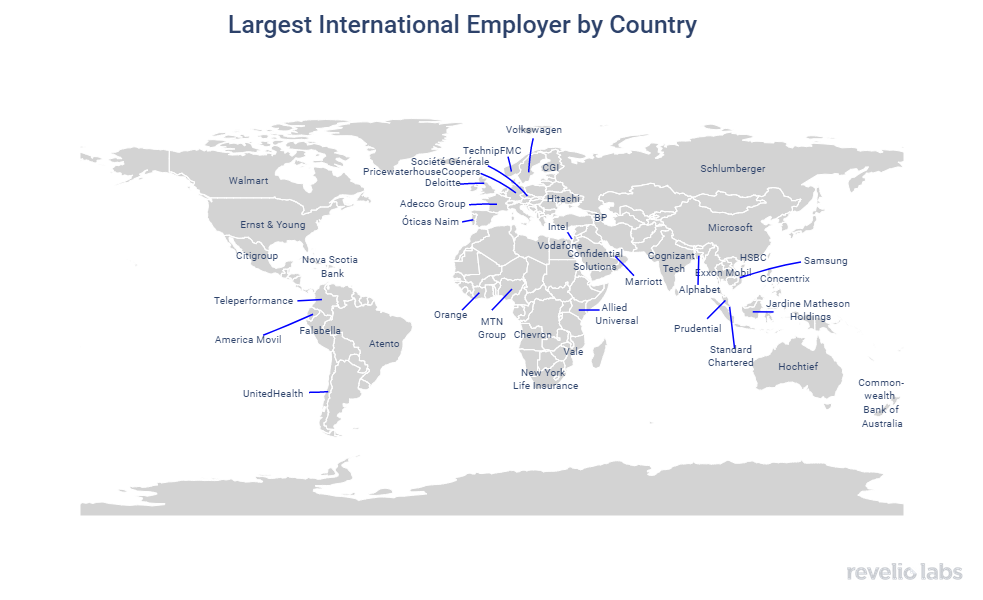
More generally, which industry is most foreign-employed in each country? The map below shows, for each country, the industry with the largest number of workers employed by international companies. Interestingly, we observe that foreign companies in the Finance & Insurance industry tend to be the largest in Africa. Foreign manufacturing companies are particularly prevalent in Europe, with most employers coming from nearby European countries. This makes sense, as the free movement of people and capital across the European Union makes a regionally-integrated manufacturing supply chain highly viable.

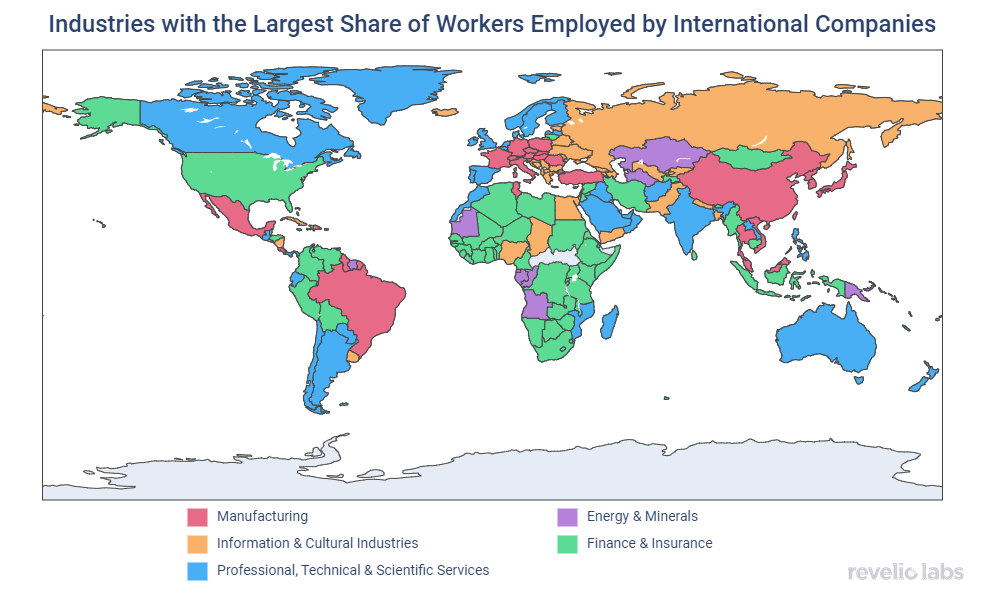
Key takeaways:
- Using Revelio Labs HR data, we find that the gap between international hiring and domestic hiring has grown in recent years.
- Developing countries in Eastern Europe, South America, and Southeast Asia have the largest shares of professionals employed by foreign companies.
- Proximity of the country of a company’s headquarters plays a notable role in international hiring patterns.
- The Finance & Insurance industry in Africa sees a particularly high level of hiring by foreign firms, and the same is true of the manufacturing industry in Europe.

